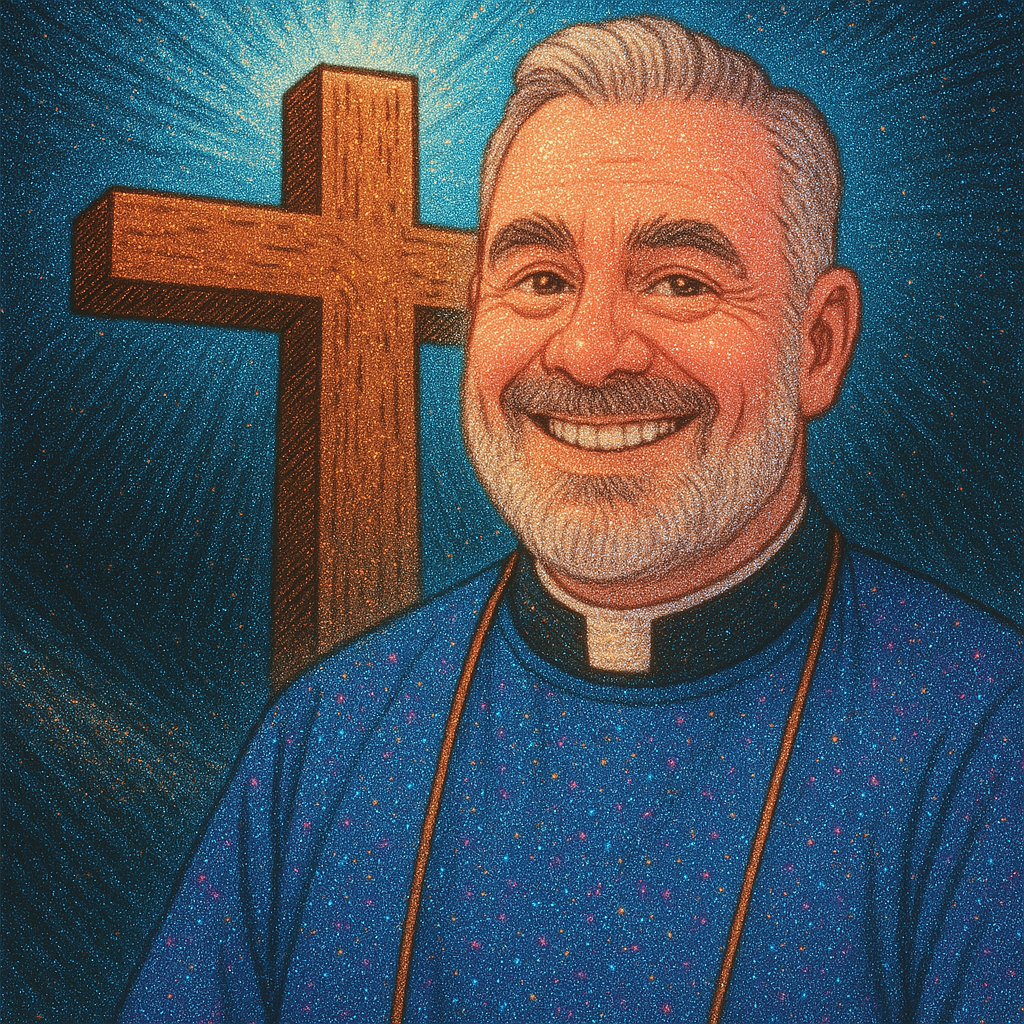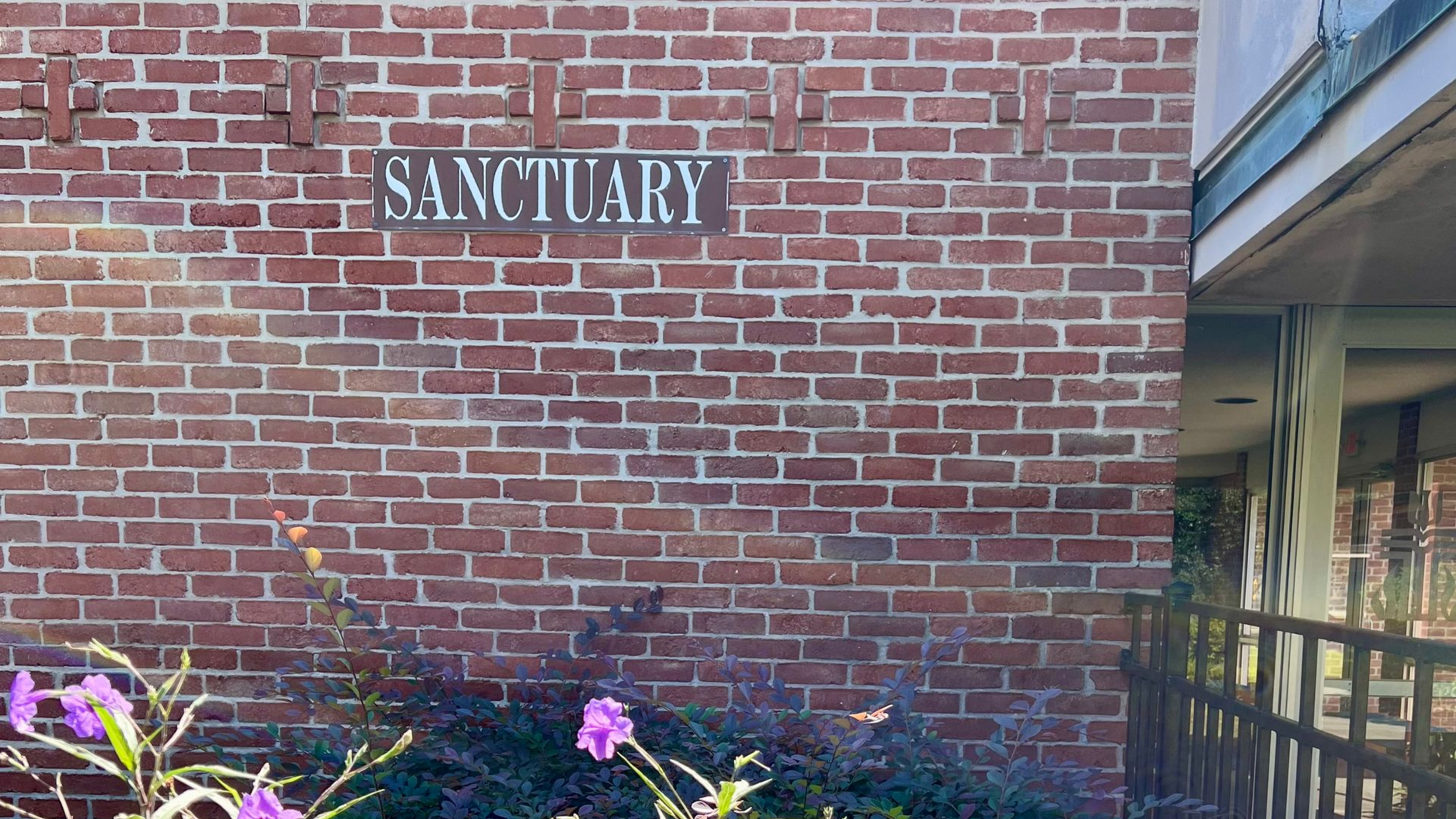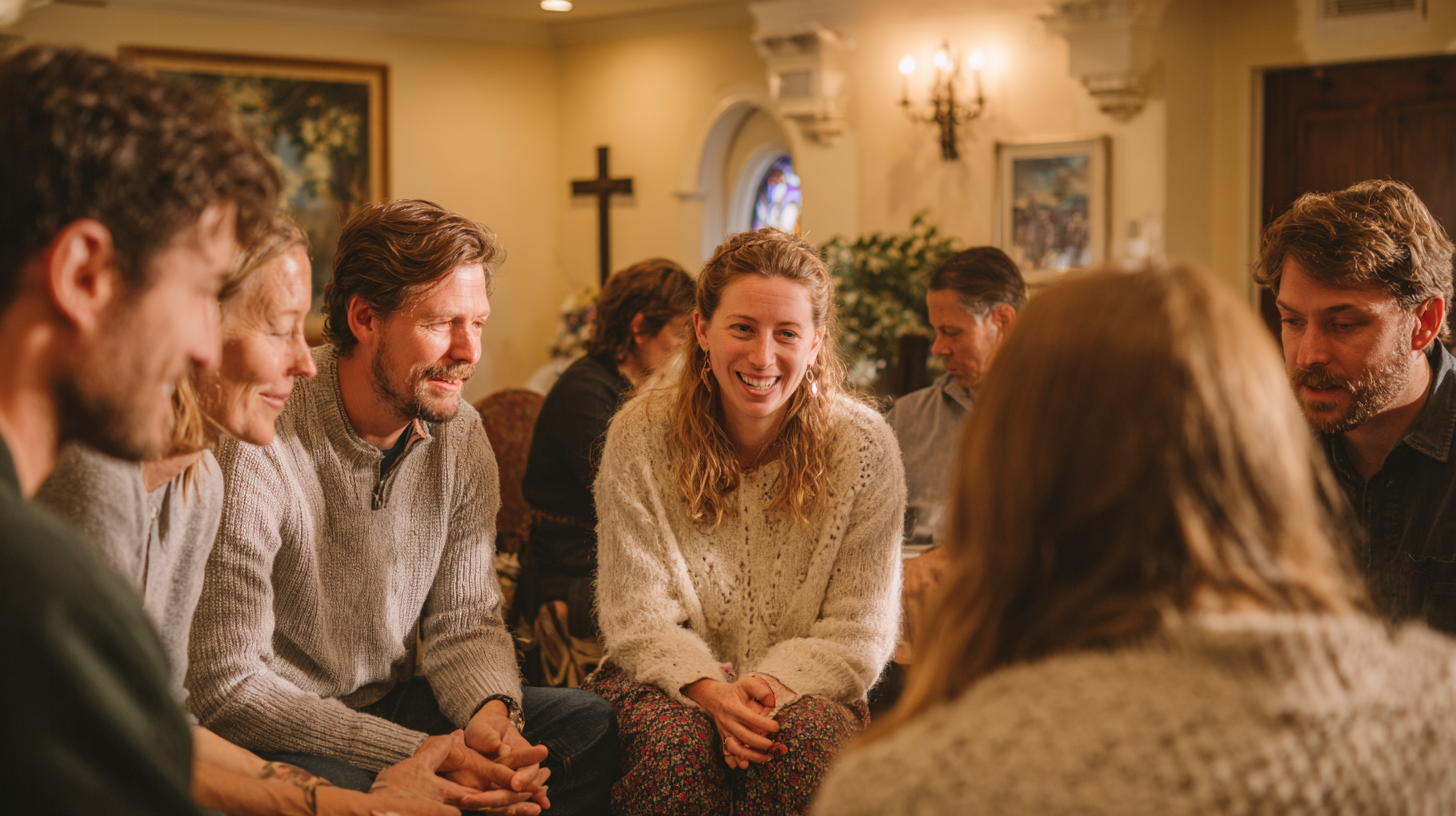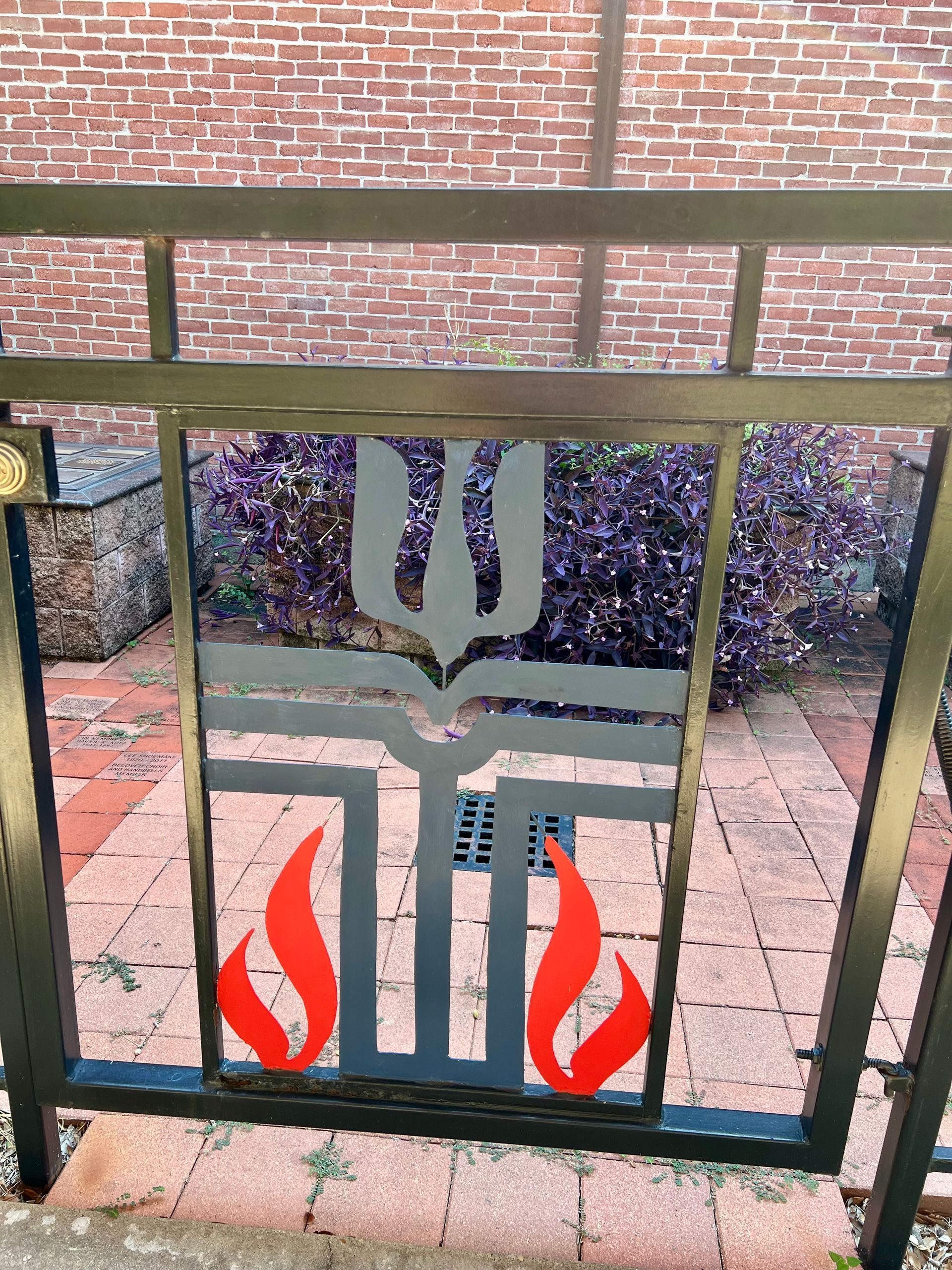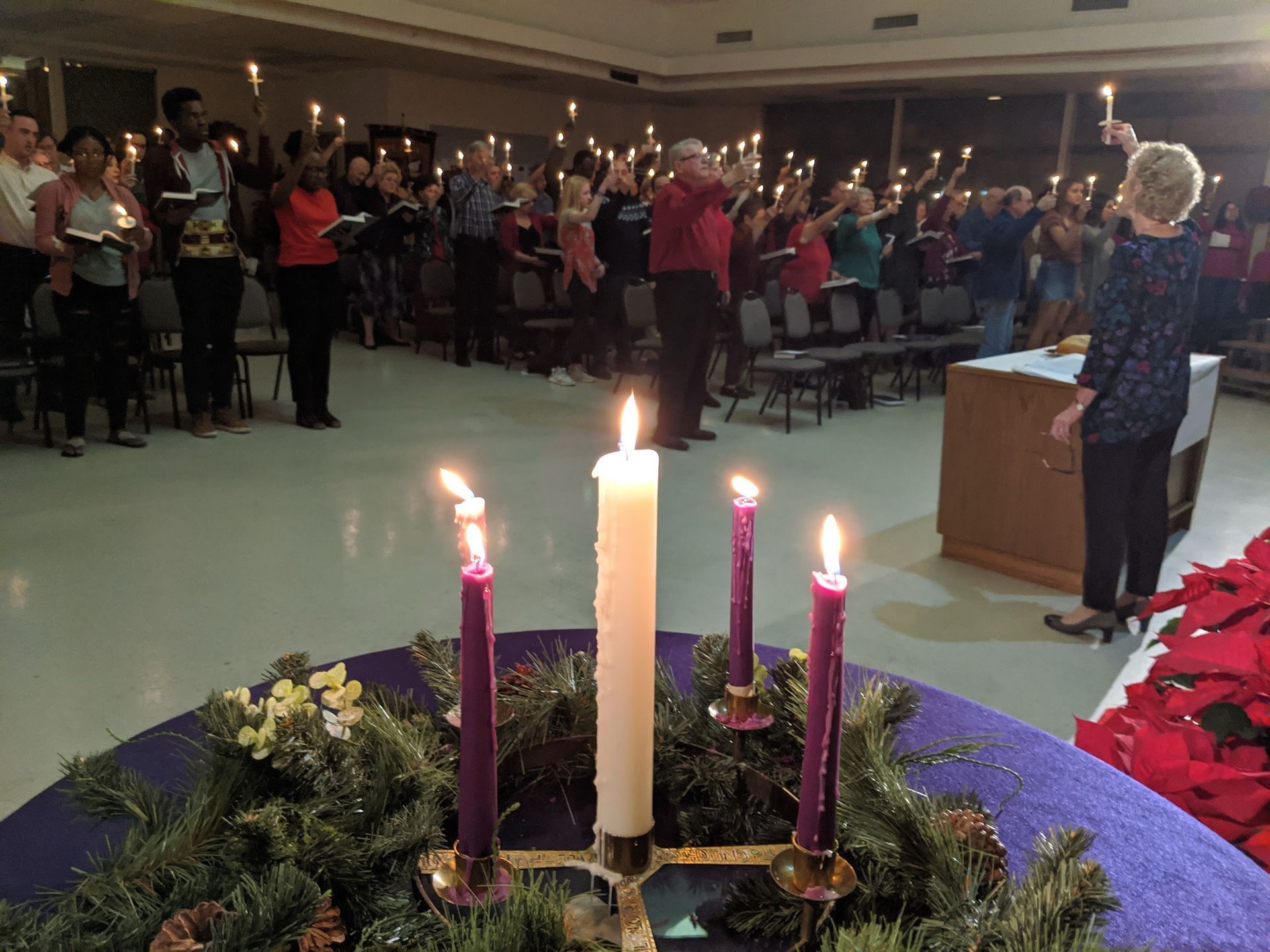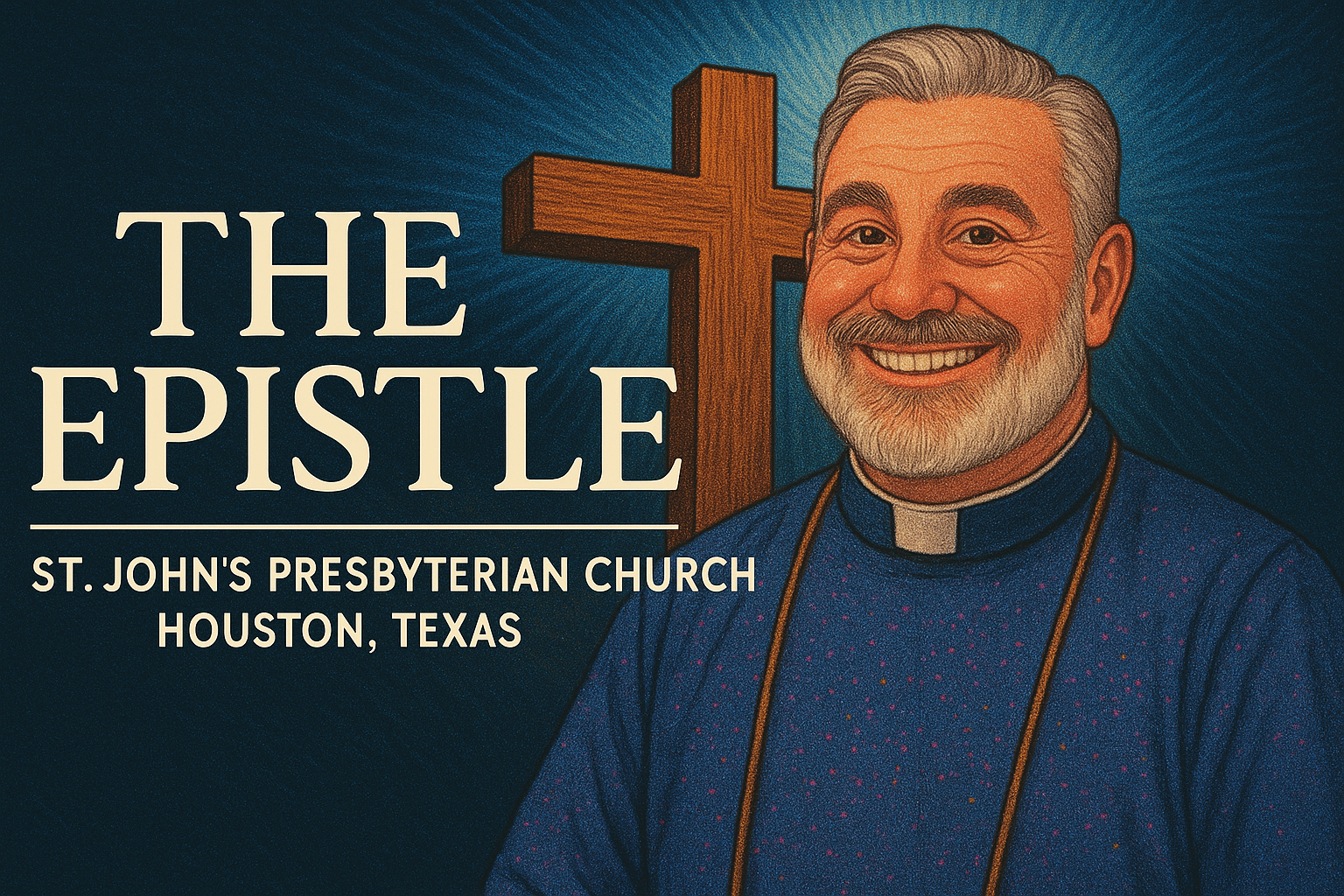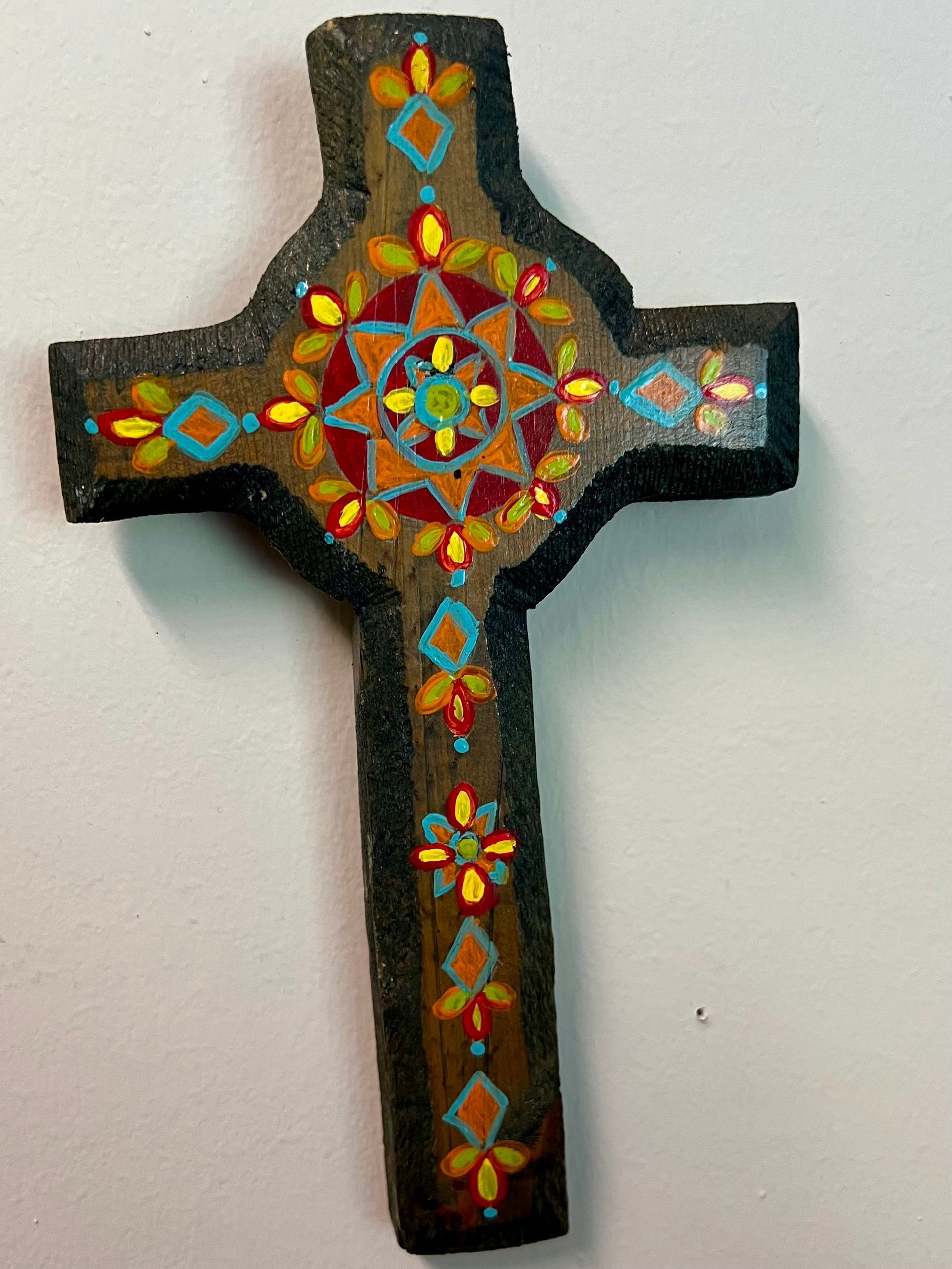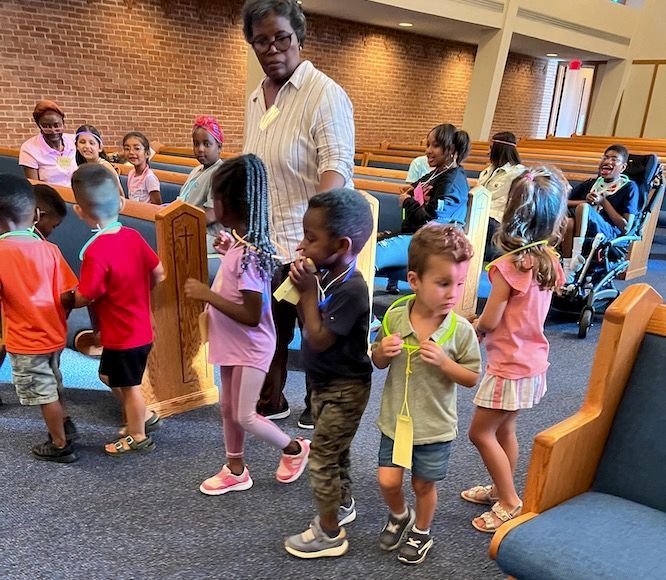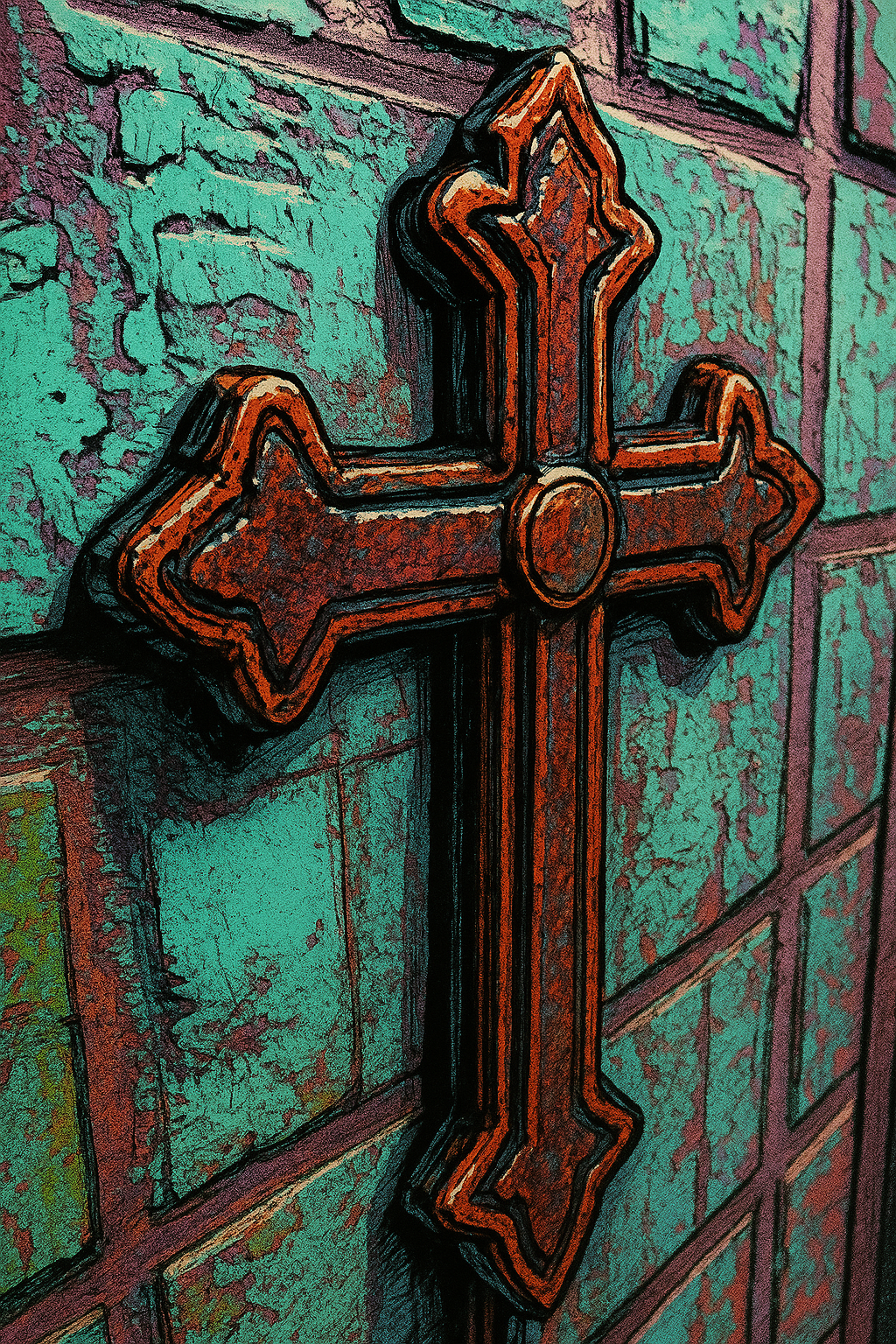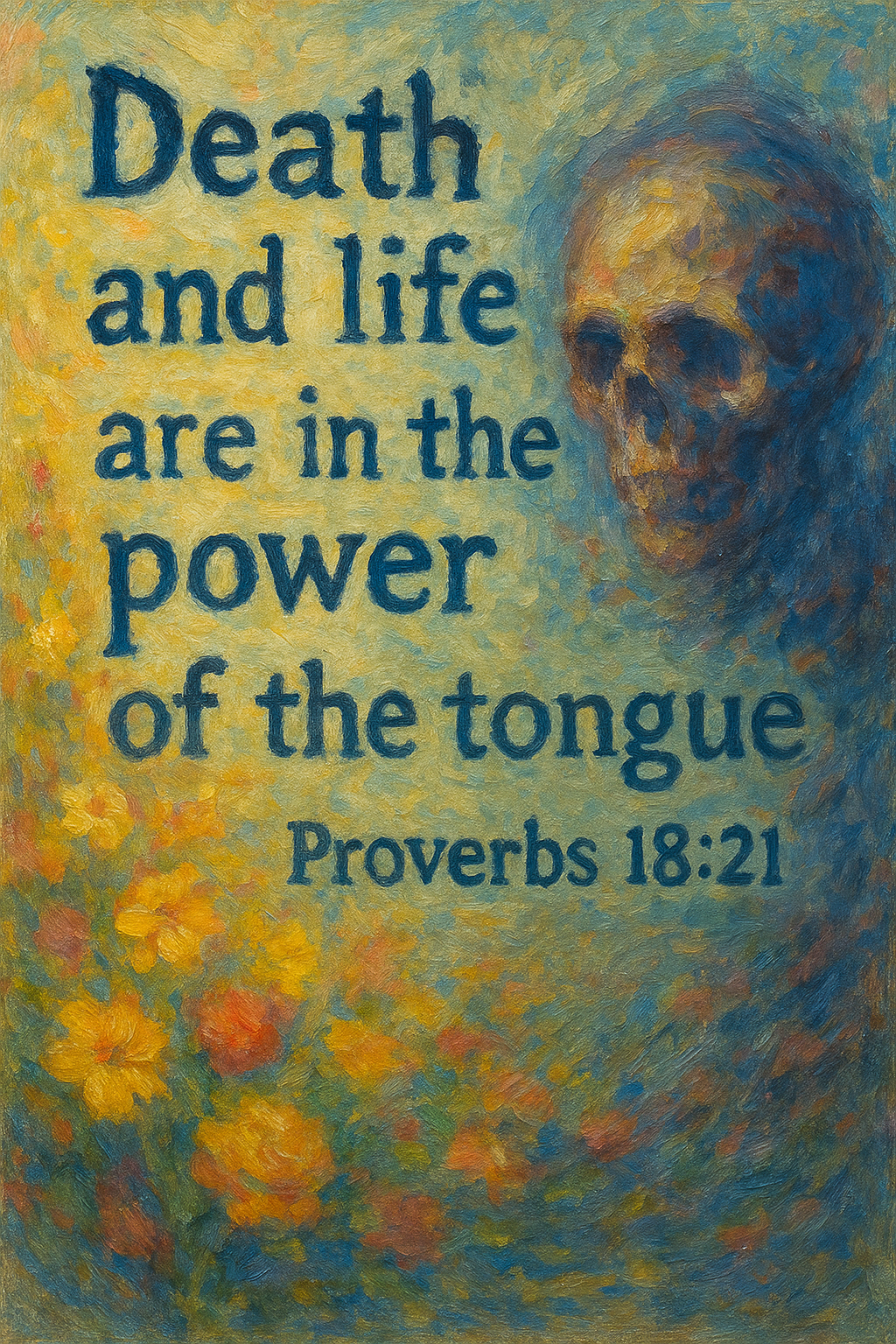Presbyterian Church Houston:
What Makes Our Worship Unique
If you've ever sat in traffic on I-10 wondering what a Sunday morning could actually mean for your soul, I understand completely. Houston moves at breakneck speed.
Churches appear on every corner like coffee shops, each promising something spectacular. But you? You're searching for worship that actually stays with you, the kind that nourishes your spirit without all the production value. That's where Presbyterian worship comes in, especially at a place like ours. Let me walk you through what sets it apart. We'll explore the flow of our service, the heart behind it, and why it feels like coming home in a city that never slows down.
I've pastored here for nearly two decades now, watching folks from all walks drift through our doors. Engineers from the energy corridor, teachers from the Heights, families juggling shift work downtown. They tell me the same thing: they've tried the big productions, the lights and bands that leave them buzzing but somehow empty. What they crave is worship that draws them closer to God and to each other.
Presbyterian style does exactly that. It's rooted in the Bible's call to gather simply, to hear God's Word, and to respond with our whole lives. At St. John's, we keep it real. No smoke machines or celebrity guests. Just honest prayer, solid teaching, and songs that lift your spirit without stealing the show.
Worship Isn't a
Performance You Watch
Think about it for a second. Worship isn't a performance you observe from your seat. It's a family meal you share. In Presbyterian tradition, we believe God invites us all to the table, not just as guests but as participants. That comes from the priesthood of all believers, a core idea from the Reformation. Every single one of us has direct access to God through Jesus. No middlemen required. Our services reflect that reality. You'll hear Scripture read aloud, pray together, and sing hymns that have carried believers through genuinely tough times. It's orderly, yes, but warm. Like sitting around a kitchen table with folks who know your name and actually mean it when they ask how you're doing.
Let me paint a picture of a typical Sunday at St. John's. We start at 11 a.m. sharp, but folks trickle in a bit early to visit in the narthex. That's our fancy word for the entry hall, where handshakes turn into stories about the week's highs and lows. No rushing around. As the bells ring, we settle into the sanctuary. It's got high ceilings and wooden pews that creak just enough to remind you you're alive. The light filters through stained glass windows. Nothing flashy, but it pulls your eyes upward where they probably need to go anyway.
Our service opens with a call to worship, usually something from the Psalms. Something like, "The Lord is in his holy temple; let all the earth be silent before him." We read it together, voices blending in that imperfect way that makes it feel truly alive.
Then comes a hymn. We love our music here. Our choir director, Mark, picks pieces that range from old Scottish psalms to gentle arrangements of more recent tunes. Last Sunday, we sang "Great Is Thy Faithfulness." You know the one: "All I have needed thy hand hath provided." By the second verse, even the stoic types in the back row sway a little. It's not a concert. It's us, reminding each other of God's steady promises amid Houston's hurricanes, literal and otherwise.
Next, we confess our sins. Not in some gloomy ritual that makes everyone miserable, but honestly. I lead a prayer where we own up to the ways we've fallen short, like snapping at a coworker or scrolling past a friend's cry for help. Then comes assurance of pardon from Romans: "There is now no condemnation for those who are in Christ Jesus." Relief washes over the room. You can feel it. That's grace in action. Presbyterian worship leans hard on this truth. We don't pretend we're perfect. We start with God's forgiveness so everything else flows from joy instead of obligation.
The Heart of Our Service:
Scripture and Sermon
The heart of it all is the sermon. I preach for about 15 minutes, unpacking a passage from the Bible. Right now, we're in the book of Job, walking through life challenges that lead to hope in Christ. Last week, we looked at the story of God speaking to Job in the whirlwind. I shared a story from my early days here. A woman named Maria showed up one rainy afternoon, soaked from a bus ride across town. She'd been hurt by a church that made her feel like just another number in the database. We talked about seeds that Sunday: some fall on rocky ground, but others take root in good soil. By the end, tears in her eyes, she said, "Pastor Jon, I think I'm ready to plant something here." That was several years ago. Now she's leading our food pantry ministry, feeding neighbors in Southwest Houston. See? Worship isn't isolated from the rest of life. It plants seeds for real change.
We don't stop at words alone. Sacraments seal the message. Baptism happens when we welcome new folks or little ones into the covenant family. It's a simple pouring of water, with vows from the congregation to support that child or believer as they grow. Lord's Supper comes monthly. We use a common cup or intinction, bread dipped in juice, passed hand to hand. It's intimate. Eyes meet across the aisle. "The body of Christ, broken for you." Those words hit differently when you're breaking bread with the same faces week after week.
Prayers bookend everything. The pastoral prayer in the middle covers the church's joys and sorrows. Houston hits hard: floods, job losses, racial tensions, the constant pressure of just keeping up. We name them out loud. Then the Lord's Prayer unites us across all our differences. Offering follows, not as a guilt trip but as cheerful giving. Our envelopes are plain, but the impact? Last year, your gifts brought One Hope Preschool to our campus. Kids who never knew a swing set now laugh there daily.
Then a final hymn, maybe "It Is Well with My Soul." As we rise to sing those familiar words, "When sorrows like sea billows roll," the weight of the week seems to lift a bit, replaced by a quiet assurance that God's got us, even through Houston's endless rains or unexpected curveballs. Voices young and old blend together, not perfectly tuned but perfectly honest, carrying us right into the week ahead where that same peace pushes us to check on a neighbor or lend a hand at the shelter down the street. And just like that, worship wraps up not with a bang, but with a gentle nudge toward living it all out in the everyday grind of this big, beautiful city.
We close with a charge and blessing. I send you out: "May the Lord bless you and keep you. May the Lord cause his face to shine upon you and give you peace." As we file out, there's no rush. Stay for lunch if you want. That's Presbyterian worship at St. John's: structured enough to guide you, flexible enough to hold your mess.
What Truly Makes
Presbyterian Worship Different
But what actually makes it unique? Let's dig deeper. Presbyterians trace our roots to John Calvin in 16th-century Geneva. He saw worship as God's idea, not ours. The Bible shapes it all. Second Timothy 3:16 says Scripture is God-breathed, useful for teaching and correcting. So we center everything on the Word. Preaching isn't fluffy inspiration designed to make you feel good for an hour. It's exposition, explaining the text in context. No cherry-picking verses to fit a feel-good message. If the Gospel talks about costly discipleship, we lean in, even if it stings a little.
Compare that to some Houston spots. You know the megachurches with video screens and fog machines. They're fun, draw massive crowds. But often, the message gets lost somewhere in the spectacle. At St. John's, we flip that equation completely. Depth over dazzle every single time. Our sanctuary seats 200, but on a full day, it feels genuinely full because everyone contributes something. Elders pray. Kids sing. That's our government structure: rule by elders, chosen from the congregation. Not top-down leadership from some distant office. Shared leadership built on trust. You know the faces leading because you see them at the grocery store on Thursday afternoon.
Sacraments stand out too. Baptism and Lord's Supper aren't optional add-ons for special occasions. They're visible words, as Calvin called them. In a city where faith can feel intensely private, these pull us into community whether we're naturally comfortable with that or not. Remember Maria? Her baptism wasn't a solo event where she got dunked and everyone clapped. The whole church vowed to walk with her through whatever comes next. That's covenant theology: God's promises bind us together in ways that transcend our individual preferences.
Music? We sing Psalms and hymns because they echo Scripture directly. No endless choruses that repeat the same line fourteen times.
Variety keeps it fresh: four-part harmonies, organ swells, even a guitar on occasion. But always pointing to God, never to the performer. One time, our organist hit a spectacularly wrong note during "Amazing Grace." We all chuckled quietly. "Even the pipes need grace," I quipped from the pulpit. It lightened the moment, reminded us worship is gloriously human even as it reaches toward the divine.
Prayer as
Community
Practice
Prayer is another hallmark of Presbyterian worship. We pray corporately, actually listening to each other instead of just waiting for our turn. In Houston's incredible diversity, that's pure gold. Our prayers lift up immigrants, first responders from the ship channel, artists from Montrose, healthcare workers exhausted from double shifts. It's mission woven directly into worship. Worship fuels service naturally. After all, James 1:27 calls pure religion caring for orphans and widows in their distress. We don't artificially separate Sunday from Monday morning.
Now, if you're church-shopping in Houston, here's a practical way to evaluate what you're experiencing. Ask these questions next time you visit a Presbyterian spot like ours:
- First, does the service follow Scripture closely? Listen for how the Bible drives the whole thing, not just gets quoted occasionally.
- Second, are people participating, not just spectating? Look for moments where the congregation speaks or prays together instead of watching a stage.
- Third, how do they handle sacraments? Are they central to worship, explained simply?
- Fourth, what's the vibe afterward? Do folks linger and actually connect, or does everyone bolt for the parking lot?
- Fifth, what are the ties to mission? Any stories of local impact beyond just writing checks?
- Sixth, is leadership visible and accountable? Can you identify elders, talk to them?
- Seventh, does worship challenge you gently toward deeper faith? No perfection required, just steady growth.
These aren't rigid checkboxes to mark off. They're lenses to see whether worship actually forms you into Christ's likeness over time. At St. John's, we've seen it work in real lives. Take Robert, a retired oil executive. He wandered in skeptical, used to boardroom efficiency and results-driven meetings. Our quiet prayers unnerved him at first. "Too much silence," he complained. But he stuck around, and slowly he found space to process his losses after his daughter moved to California. Now he mentors young dads in our men's group every other Tuesday. Worship changed him because it met him exactly where he was, not where he thought he should be.
Finding Your Place
in Houston's Church Landscape
Houston's church scene is genuinely vast. From charismatic gatherings in the Woodlands to contemplative masses in the Loop, from storefront Spanish services to massive stadium events. Presbyterians fit somewhere in the middle: thoughtful, biblical, deeply communal. What sets us apart? Our confessional standards, like the Westminster Confession. It says worship should be regulated by Scripture alone, nothing added. That keeps us grounded when every cultural wind tries to blow us around.
In a big city like ours, intimacy matters more than most people realize. St. John's isn't huge, and that's actually our strength, not our weakness. You won't get lost in the crowd or slip out unnoticed for six months. After service, I make a point to greet newcomers personally. "Tell me your story," I say, and I actually mean it. Last month, a couple from Bellaire shared their struggle with infertility, voices barely above a whisper. By week's end, three families rallied with meals and prayers and just showing up. That's worship extending outward into Monday through Saturday.
It connects directly to mission too. Our worship calls us to justice, not just charity. Isaiah 58 blasts empty religion that looks good but accomplishes nothing. So we respond concretely: partnering to create a food bank with several area churches, tutoring kids in struggling schools, advocating for better housing policies. Sunday's songs become Monday's sweat equity. Faith that stays comfortable in the pew withers fast. At St. John's, it blooms in Houston's challenging soil.
Ever wonder why Presbyterians emphasize order so much? It comes from 1 Corinthians 14:40: "All things should be done decently and in order." It's not about being stuffy or rigid. It's actually freeing. You know what to expect, so your heart can wander freely toward God without wondering what's coming next. No chaos for chaos's sake. Just steady rhythm, like the bayou after rain finally stops.
Humor creeps in sometimes, keeping us human. Like when we baptized a fidgety toddler who splashed water absolutely everywhere, soaking the front two rows. "Future missionary to the water parks," I whispered to the mortified parents. Laughter rippled through the sanctuary. It keeps us human and reminds us God's big enough to handle our quirks and mishaps.
Why Presbyterian Worship
Feels Like Home Here
Houston's a genuine melting pot, right? Over 145 languages spoken across this sprawling city. Churches reflect that beautiful mix. Some pulse with global rhythms and drums, others echo quiet European halls and pipe organs. Presbyterian worship? It's like a steady heartbeat in all the chaos. Rooted in Reformed tradition, it values God's sovereignty above everything. That means we trust the Creator runs the show, not our carefully crafted plans or programs. In worship, it shows up as humility. We don't manufacture spiritual experiences through lighting or emotional manipulation. We receive what God gives through Word and Spirit.
Take our prayers of illumination before the sermon. After reading the Scripture passage, I say, "The Word of the Lord for us today." The congregation responds: "Thanks be to God." It's both an acknowledgement of God's presence and action in our worship service, and honestly, a plea for help. In our self-help culture where everyone's supposedly got the answers, that's genuinely radical. We admit openly we need divine light to understand anything at all. I've seen skeptics visibly soften during those simple moments. One visitor, a lawyer named Elena, confessed later over coffee: "I came expecting theological debate and arguments. Instead, I felt truly seen for the first time in years." That's the Spirit at work in ways we can't manufacture.
Our hymns draw from that deep well too. We sing theologically rich ones that actually teach doctrine. "A Mighty Fortress Is Our God" isn't just catchy or nostalgic. It declares God's ultimate victory over evil in no uncertain terms. In Houston, where storms brew terrifyingly fast, those words anchor us when nothing else will. After Harvey flooded half our homes, we belted it out with mud still caked on our boots from cleanup. Worship met grief head-on, acknowledged it, then lifted hope from the rubble.
The Role of Sacraments:
More Than Empty Symbols
Let's talk sacraments more deeply. Presbyterians recognize exactly two: baptism and Lord's Supper. Why only two? Because Jesus commanded them specifically. Matthew 28:19 for baptism, 1 Corinthians 11 for the Supper. They're signs and seals of grace. Not magic rituals, but genuine means God uses to strengthen faith in measurable ways.
At St. John's, baptisms happen right during the service where everyone participates. Families stand before us, water poured with the Trinitarian formula. The congregation promises support out loud, committing themselves. It's covenantal, like God's ancient promise. Like Abraham's story in Genesis 17, God's pledge extends across generations beyond our short lifespans. For adults being baptized, it's a public yes to following Christ no matter what. We had one last spring: a young dad from Nigeria, voice remarkably steady as he shared his journey from Islam. The room held him in that moment. No fanfare or production, just family welcoming family.
Lord's Supper? Open to all baptized believers who trust Christ. We use real bread with actual texture, tart juice that makes you pucker slightly. Intinction lets you dip the bread yourself, a tactile reminder of union with Christ that engages your senses. Paul says in 1 Corinthians 10:16, "The bread we break is a participation in the body of Christ." It's fundamentally communal, not private meditation. Passing the plate, you touch hands with strangers who become friends, share meaningful glances. In our diverse pews, it's visible unity across every divide our culture tries to maintain.
Contrast that with private communions you take in your seat at some churches, each person isolated with their tiny cup. Ours intentionally builds bonds. Afterward, folks often discuss it over pie in the fellowship hall. "That verse hit me hard today," someone says, and conversations spark naturally. Faith grows in community like that.
Elders and Shared Ministry:
Leadership That Serves
Presbyterian government shapes worship uniquely compared to other traditions. Elders, both teaching and ruling types, lead together. The pattern comes from 1 Timothy 5:17, where they shepherd the flock as a team. At St. John's, we elect them yearly from the congregation. They're your actual neighbors: accountants, nurses, baristas, retired teachers. They plan services, visit the sick, teach Bible classes, handle discipline when necessary.
This means worship feels owned by everyone, not performed for everyone. An elder might lead prayer one week, sharing a personal testimony that makes it real. Last month, Tom, a ruling elder who works in construction, prayed specifically for our city's struggling schools. His daughter teaches third grade in a tough district; his words carried genuine weight born from experience. There's no distant bishop in another city making decisions. Local voices guide local ministry.
Elders and church members handle mercy ministry together. They coordinate after worship: soup kitchens, hospital calls, advocacy for the vulnerable. Worship flows directly into works of service. Jesus said clearly in Matthew 25, feeding the hungry is serving him personally. Our offering supports that tangibly. Last quarter, it funded backpacks filled with supplies for 50 kids in foster care, each one personalized.
Challenging the Superficial
Without Being Harsh
I won't sugarcoat this reality. Some church experiences today prioritize entertainment value above everything else. Great production quality, professional-level lighting and sound, but theology barely deeper than a puddle. Presbyterian worship challenges that lovingly but firmly. We ask the uncomfortable question: Does this actually draw you closer to God, or does it just amuse you for an hour?
Colossians 2:23 warns that human-made rules and regulations lack real value for restraining the flesh. So we stick close to Scripture's pattern for corporate worship. Prayer, praise, preaching, sacraments, offering. Five essential elements, like fingers on a hand. Balanced and working together.
In Houston's non-stop hustle culture, that's genuinely countercultural. You get enough entertainment shows on Netflix already. Worship invites something different: surrender of your agenda. One of our elders put it wryly during a meeting: "If God wanted a circus, he would've made clowns apostles instead of fishermen." We laughed, but it stuck with us. Depth wins over time.
For genuine seekers exploring Houston Presbyterian churches, evaluate using this framework. First, two questions on preaching: Does it explain the biblical text faithfully in context? Does it apply meaningfully to real life? Second, four questions on community: Do prayers include actual needs, not just generic requests? Is music participatory, or are you just an audience? Do sacraments feel inclusive and central? Does post-service time naturally foster real conversation? Third, one question on mission: Any clear call to serve beyond these walls? Finally, two questions on leadership: Are elders visible and genuinely accountable? Does worship challenge you gently toward deeper faith without demanding instant perfection?
Use that framework honestly. It'll clarify what you're actually looking for.
Stories That Stick:
Real Lives Transformed
Pastoral life gives you front-row glimpses of transformation. Like the widow, Grace, who lost her husband to aggressive cancer after 40 years of marriage. First service, she sat rigid in the back corner, arms crossed defensively. Our quiet confession prayer cracked something open in her. "I can finally name my anger at God," she whispered afterward, tears streaming. Months later, she's quilting prayer shawls for chemo patients at MD Anderson. Worship healed her wounds, then propelled her toward others still hurting.
Or Javier, a mechanic who came doubting faith's relevance to his actual life. The sermon on James 2 hit him: faith without works is completely dead. He grumbled walking out, "Easy for you to say from the pulpit." But our deacon team invited him to fix vans for our outreach ministry. Now he's elder material, leading with quiet strength. Worship sparked action he didn't know he had in him.
These aren't unusual anomalies we trot out for good PR. They're the normal pattern when worship roots itself in truth and community.
Houston Flavor:
Worship for Bayou Folks
Our city shapes us whether we realize it or not. Traffic jams teach patience if you let them. Diverse neighborhoods teach listening across difference. Presbyterian worship mirrors that reality. We've been inclusive from the start. Back in 1956 when St. John's first formed, Houston was still actively segregating. We chose open doors then, and we maintain them now. Today, our church includes significant numbers of African emigrant families, blending beautifully with longtime Texas families.
We add seasonal touches too. Lent's somber reflections fit our humid melancholy perfectly. Easter's explosive joy matches azaleas blooming across Memorial Park. Christmas Eve? Our candlelight service creates dancing shadows as we sing "Silent Night" in the gentle darkness. Houston nights actually cool down then; hearts warm up instead.
We adapt thoughtfully without compromising core principles. Virtual options exist for shut-ins and those genuinely unable to attend, but we prioritize in-person gathering. Nothing beats shared breath in prayer and actual presence with your church family.
If you're searching for Presbyterian worship in Houston that combines solid biblical teaching, intimate community, and genuine mission engagement, St. John’s Presbyterian Church offers exactly that. We're not the biggest or flashiest church in town. But we might be exactly what your soul needs: worship that sticks with you long after you leave the parking lot, community that actually knows your name and your story, and mission that puts faith into concrete action across Houston's diverse neighborhoods.
Come visit us this Sunday at 11 a.m. No pressure, no sales pitch. Just come see what Presbyterian worship feels like when it's done with genuine care in a community that actually wants to know you. That's what makes us unique in Houston's crowded church landscape. Not our programs or production value, but our commitment to worship that forms you into Christ's image through Scripture, sacrament, and authentic fellowship.
Tying It to Mission:
Worship That Moves
Finally, mission. Worship isn't endgame. It's launchpad. Micah 6:8: do justice, love mercy, walk humbly. Our services end with that charge. Folks leave equipped.
St. John's partners locally:
Braes Interfaith Ministries with these services provided: Food, clothing, limited financial help, and school supplies to support our neighbors in need.
We helped found with other area church decades ago. A hymn like "They'll Know We Are Christians by Our Love" isn't lip service. It's blueprint.
If you're drawn to this, explore more. Check out
Bible Study Near Me: What to Expect at St. John's Weekly Groups for our small groups where relationships really develop. Or
Community Church Houston: How St. John's Builds Real Relationships. For identity,
Mission-Oriented Church Houston: Finding the People Actually Doing God's Work. And swing by our
church staff page to get to know us better before we hopefully will see you this Sunday. Or maybe before, if you are interested.
Friends, worship uniquely shapes us. At St. John's Presbyterian Church in Houston, it's an invitation to know God deeply and each other truly. In a town that dazzles, we offer substance. Come see. Sunday's waiting. You'll leave not just informed, but formed. Grace and peace.
Your
Invitation
So,
what makes our worship unique? It's
biblical, communal, transformative. In Houston's sprawl, St. John's offers
anchor.
Come Sunday. Let the Word wash over you, songs lift you, prayers bind you. You'll find family, purpose, God.
I'm Pastor Jon. Door's open. See you soon.

